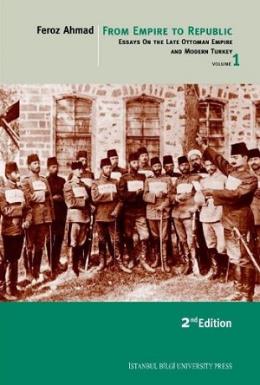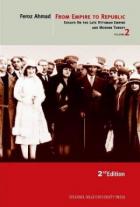İn these two volumes ot essays, l-eroz Ahmad tocuses on a crucıal penoı of Turkish modemization, from Young Türk period to the Republic of Turkey and tine relationship between the Committee of Union and Progress and Modern Turkey. He discusses the work5 of a generation of reformers and engineers of a new social order, as we[[ as events that shaped the path of modernisation, These articles deal with the period since the 1908 revolution, examining the process by which the new Turkey was formed-The author also underlines the crises of legitimacy that characterized much of the period.The essays in two volumes are compiled thematically. The first volume deals with the "ideas" of modernisation which span the period of Young Türk Revolution to the Kemalist movement. The volume also analyzes various other topics such as Unionist relations with non-Muslim communities, the social and economic policy of the Young Turks, and the political economy of Kemalism. The second volume discusses events of the same period and examines how a revolutionary such as Leon Trotsky saw about the Young Türk revolution. There are also articles on the development of vvorking-class consciousness, how postage stamps reflected ideology in the late Ottoman Empire, and the Ottoman perception of the capitulations. Taken as a whole these two volumes will help readers understand some of the problems Turkey is facİng today.Feroz Ahmad's works on Second Constitutional Monarchy and Modern Turkey are welt-known. He is an important bistorian who observes and evaluates political structure offtlıe] East from Müslim India to Turkey. in these two volumes, he evaluates the problems of Turkey in the last century and discusses with Turkologists and Turkish intetlectuals. These articles were written över the years and tberefore reflect specifıc context.










Kullanıcı Yorumları